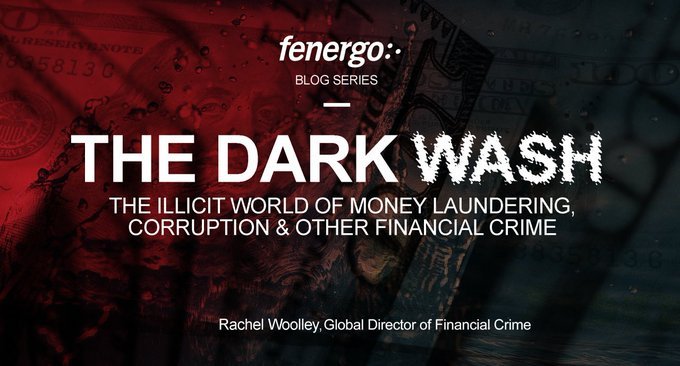Epstein & Friends: Managing PEPs and Your Exposure to Risk.
 Rachel Woolley reports: What is a PEP, and why should financial institutions be vigilant when assessing the risk of doing business with one? What if someone is not a PEP, but an individual that happens to be associated with one through family, business or other close personal connections? Is Kanye West now a PEP?
Rachel Woolley reports: What is a PEP, and why should financial institutions be vigilant when assessing the risk of doing business with one? What if someone is not a PEP, but an individual that happens to be associated with one through family, business or other close personal connections? Is Kanye West now a PEP?
The definition of a politically exposed person (“PEP”) varies slightly from jurisdiction to jurisdiction but is generally accepted to include individuals that hold a “prominent public function”, including presidents, prime ministers, and other senior politicians. The definition also extends to members of royal families, senior executives of state-owned entities and heads of international organisations, such as the UN, WHO, IMF and the World Bank. Most jurisdictions consider individuals with the ability to direct and control government funds, or the ability to influence decisions, to be politically exposed, and thus could be susceptible to external influence, bribery, or corruption.
It is important to note that identifying an individual as a PEP is not a suggestion of previous or future criminal behaviour. However, it is necessary for financial institutions to adequately identify those individuals that not only hold prominent public functions, but also those that are considered to be closely connected to senior politicians, like family members and business associates, i.e. “known close associates”. The purpose of determining if an individual is a PEP or not is so additional scrutiny can be applied to the financial activity of such individuals. The source of wealth and source of funds of a PEP must be identified, both of which help to paint a picture as to the expected activity of that PEP throughout the relationship with the financial institution. Ongoing activity must also be assessed in order to identify any transactions that may be related to bribery or corruption.
But what about friends? Shouldn’t financial institutions also be concerned about individuals who have close personal connections to influential politicians? The nature of such relationships is important to consider. It is not a crime to be friends with a PEP of course, but questions should be asked about any linked financial transactions or mutual business interests. Close relationships between world leaders should also be considered, particularly where one stands to benefit from the success of another. Financial institutions should be alert to the potential for financial activity relating to such individuals, especially through any associated individuals or companies.
Political connections aside, wealthy individuals with prominent business interests are categorised as high net worth individuals (“HNWI”) and their financial activity should also be subject to increased scrutiny as a result. This is especially relevant when you consider that such individuals may stand to benefit if political decisions are made in their favour or interest, and whether or not any financial activity has occurred that may have influenced such decisions. It is also likely that such individuals mix in the same social circles as high-ranking officials, some of whom are wealthy individuals with prominent business interests in their own right. So, isn’t it important to identify and scrutinise these connections carefully?
I’m sure you’ll have seen many photographs of senior politicians alongside well-known public figures, including celebrities. You may also have seen photographs that have been widely circulated on social media of Jeffrey Epstein alongside many senior political figures. Questions have been asked as to the nature of such relationships, financial, political, or otherwise. If you haven’t yet seen the documentary, “Jeffrey Epstein: Filthy Rich”, then it’s worth watching. Consider the nature of the relationships that Epstein had with political figures, and whether his financial support or other inducements could have been used to unduly influence decisions to his benefit.
Another must-watch is Ava DuVernay’s 13th, which examines racial inequality in the United States. The documentary also looks at the influence powerful corporations have on legislation intended to bolster corporate profits while negatively impacting other members of society, often with devastating long-term consequences.
And if you have already completed Netflix then consider watching Hamilton, now streaming on Disney+. Keep an eye/ear out for the part relating to one of the first sex scandals in American political history, the Hamilton-Reynolds affair in 1791. James Reynolds extorted Alexander Hamilton, the first Secretary of the Treasury in the US, who was involved in an affair with Reynolds’ wife. Hamilton was ultimately confronted about possible corruption, answering questions as to whether or not the financial payments were in fact misappropriated government funds.
Like all things financial crime related, context is important. As a reminder, being a PEP is not a crime, but it is critical that financial institutions are alert to potential criminal financial activity when doing business with one. Knowing how to identify a PEP or identify individuals that have close associations with one is a crucial element of financial crime prevention. Understanding the nature of relationships and expected financial activity helps to identify activity that may be illicit. Consider individuals in positions of influence or power, particularly those with the ability to direct or control government funds. Also consider individuals with close personal connections. Is it reasonable to invite casual acquaintances to visit your private island, for example? About as reasonable as a celebrity running for the highest office in the land. 
@afranco
